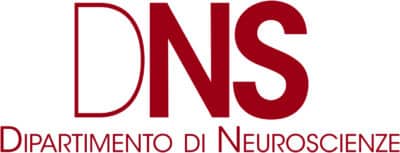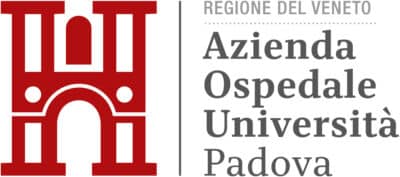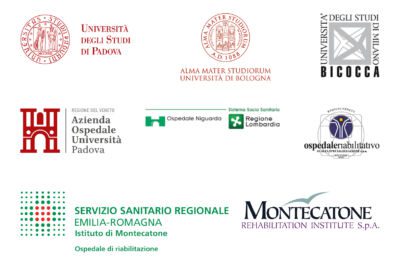

Not activated for the a.y. 2025/2026
The Master in Multidisciplinary Management of Patients with Spinal Cord Injury trains medical and healthcare staff, specialized in taking over people suffering from spinal cord injuries. Spinal cord injury is a complex clinical framework, which requires specific in-depth preparation to manage acute, chronic and social-work rehabilitation phases, according to the bio-psychosocial model defined by the Spinal Cord Injury Medicine criteria.
The goal of this Master is training staff that can perform diagnoses, manage medical complications, and set up a customized multidisciplinary rehabilitation treatment, according to the latest guidelines. During the Master, students will have the chance to explore the latest innovations in the take-over of people with spinal cord injury, including the use of new technologies and AI.
The Master in Multidisciplinary Management of Patients with Spinal Cord Injury explores all the aspects of taking over a person affected by spinal cord injury, through theoretical and practical activities, in multidisciplinary rehabilitation teams, active in the field of acute and chronic spinal cord injury management, in hospitals and territorial facilities.
It provides many clinical skills, such as the way to manage acute complications and to set up a rehabilitation project to include all the aspects of taking over a person with spinal cord injury, including the social, work and family rehabilitation phase.
The course includes several in-person and remote training activities, and participation to the seminars held by different Universities and partner care facilities.
Students can complete internships at the Master’s partner rehabilitation units, under the supervision of a tutor with proven clinical experience in the spinal cord injury field. Students may also take part in research projects and labs at the Master’s seats.
The Master in Multidisciplinary Management of Patients with Spinal Cord Injury is addressed to doctors (specialized in physical and rehabilitation medicine, neurology, internal medicine, gastroenterology, urology and other specializations), physical therapists, nurses, psychologists, occupational therapists, social workers, and other professional figures, who deal with people with spinal cord injury in different setting.
Career opportunities include rehabilitation centres, Operating Units and clinics that manage people with spinal cord injury, both in medical-rehabilitation aspects (neuromotor functions recovery, gastrointestinal and urological disorders, pain and aid management) and in psychological and social aspects (psychological and sexological support, support in undertaking sports and driving activities, social rehabilitation).
The Master in Multidisciplinary Management of Patients with Spinal Cord Injury explores the following topics:
- Anatomy and pathophysiology of the spinal cord and spine: anatomical and physiological fundamentals of spinal cord injuries.
- Prognostic, clinical, radiological and neurophysiological evaluation of spinal cord injuries: tools for diagnostic and prognostic evaluation of patients with spinal cord injury.
- Principles of invasive treatment and functional surgery in spinal cord injuries: invasive and functional-surgical methods to treat pain and disability in spinal cord injuries.
- Managing autonomic dysreflexia in spinal cord injuries: physiopathological mechanisms and therapeutic approaches to dysreflexia.
- Physiopathology and treatment of spinal spasticity: main physiopathological mechanisms of spasticity in people with spinal cord injuries.
- Osteoarticular complications and pressure injuries in patients with spinal cord injuries: osteoarticular consequences in spinal cord injury and therapeutic approaches.
- Neurological bladder: main urological diagnostic methods and treatments of neurological bladder.
- Intestine in people with spinal cord injury: physiopathology of gastrointestinal disorders in people with spinal cord injuries, diagnostic and therapeutic methods.
- Management of intern aspects in spinal cord injury: main complications and methods for diagnostic and therapeutic evaluation.
- Neuromotor rehabilitation programs for people with spinal cord injury: physical therapy techniques and basics to develop an individual rehabilitation project.
- Occupational therapy, aids and orthosis in spinal cord injury patients: occupational therapy in its applications related to spinal cord injury.
- Interventions in the domestic environment of spinal cord injury patients: main interventions in the residence of spinal cord injury patients.
- Food and diet in spinal cord injury patients: nutritional issues and diet to minimize complications.
- Pain management in spinal cord injury patients: pain in patients with a spinal cord injury.
- New technologies, robotics and neuromodulation to support neurorehabilitation: recent technological evolution used in the rehabilitation of spinal cord injury patients.
- Stem cells and regenerative medicine: state of the research concerning stem cells and regenerative medicine in spinal cord injuries.
- Psychological aspects and sexuality in spinal cord injury patients: evaluation of the psychological and sexual aspects of patients with spinal cord injury.
- EBM, Best Practices and research in spinal cord injury: evidence-based medicine in the rehabilitation of spinal cord injury patients.
- Sports and spinal cord injury: sport and main aid-related indications to facilitate the resumption of motor and sports activities.
- Law on spinal cord injury disability and managerial-financial-organizational challenges: law on disabilities and patient’s rights.
The SCI-CARE (Spinal Cord Injury – Care) Master’s degree program constitutes an inter-university postgraduate training project. It was established on the basis of a collaboration agreement between the University of Padua, the University of Bologna, the University of Milano-Bicocca, the Highly Specialized Rehabilitation Hospital of Motta di Livenza, the Montecatone Rehabilitation Hospital Institute and the Niguarda Metropolitan Grand Hospital.
Information
FAQ
Through the relevant platform. The links to the lessons are provided by each Master’s professor. Lessons are recorded and will remain available on the platform for the entire duration of the course.
Yes, the internship will be completed during the Master, at partner structures, where students can carry out clinical/care activities, under the tutors’ supervision.
This is the first Master in Italy concerning spinal cord injury and related issues, and it responds to the need to have specifically trained personnel, who can work in hospitals and territorial structures that deal with rehabilitation of people with spinal cord injury.
Attendance of at least 75% of the lessons is mandatory.
Yes, the Master agrees to the PA and top grades protocol (basic and advanced training for Public Administration employees), and a reduced fee for public employees, including Medical Directors, who enrol in post-graduate courses, such as this Master.


